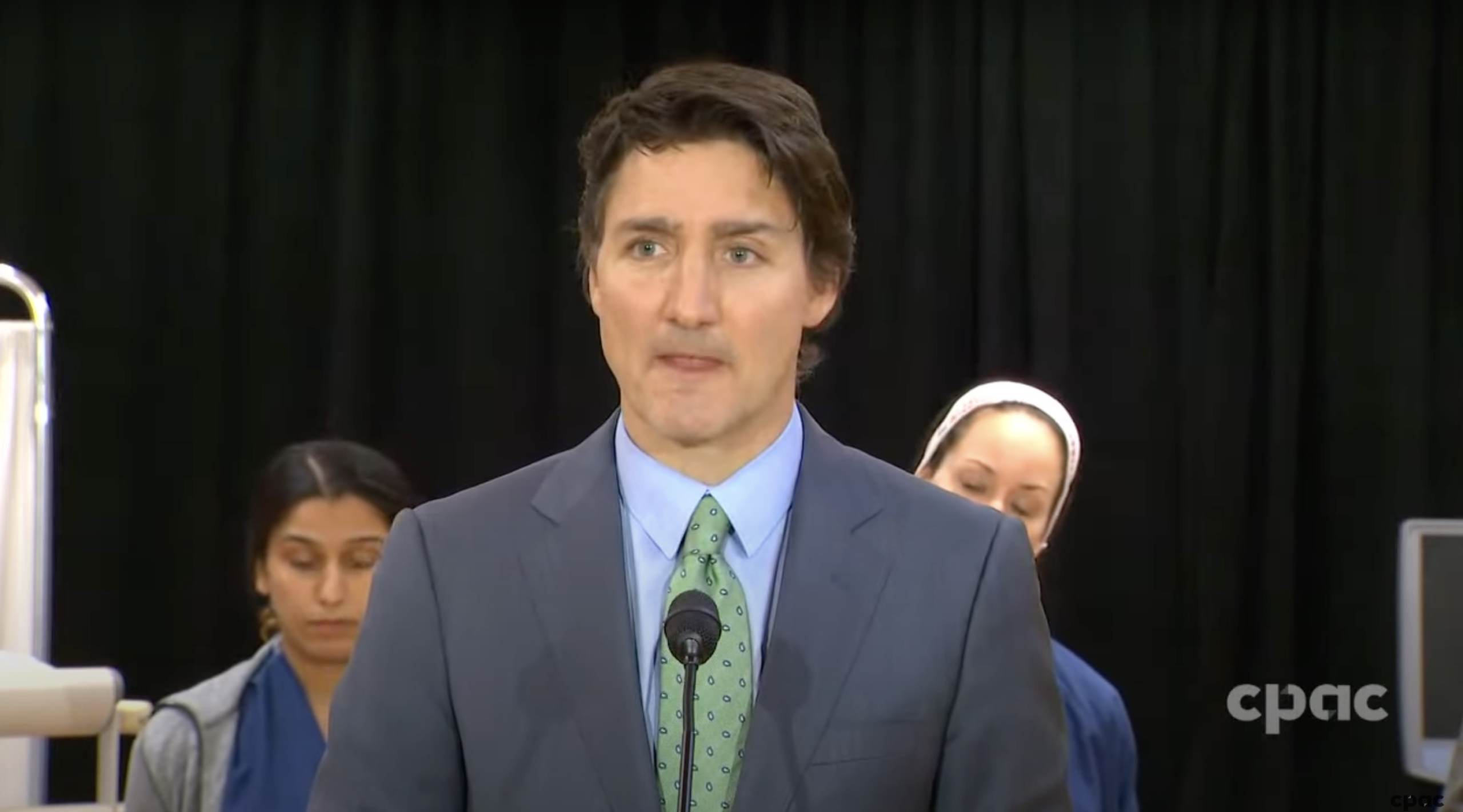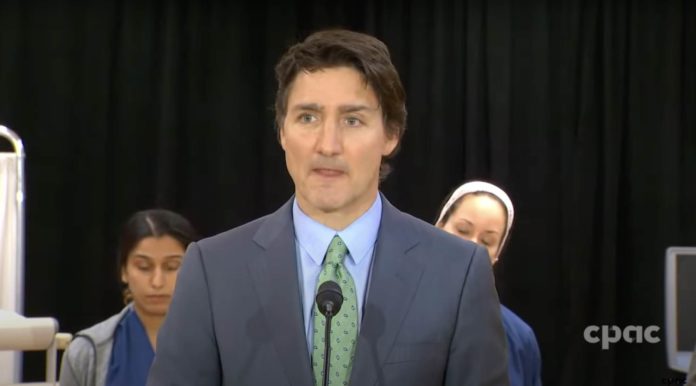
Prime Minister Justin Trudeau after his meeting with Canada’s premiers on health-care funding.
On Tuesday, Prime Minister Justin Trudeau announced the federal government’s commitment to spend $196.1 billion on healthcare over the next ten years.
The package did not even come close to meeting the expectations of the various provincial and territorial leaders.
Tyrant Trudeau met with the provinces’ premiers in Ottawa to negotiate how much money the provinces would receive to help shore up the failing Canadian economy.
Following a discussion for healthcare funding with Canadian Prime Minister Justin Trudeau, the premiers of Canada’s provinces and territories gave a joint press conference.
“One of the things that we did see today is that there wasn’t a lot in the way of new funding that is a part of this package… to say the least, I think we were a little disappointed in that,” Manitoba Premier Heather Stefanson said in response to the federal government’s proposal.
According to reports, the proposal comes with the condition for digital ID data collection. Trudeau is trying blackmail to get Canadians to sign up for Digital ID.
Canadian news outlet Star reported back in October reported that federal sources said Justin Trudeau was ready to freeze out Quebec and other provinces in federal healthcare deals.
“Yesterday, in Canada, Justin Trudeau met will all of our provincial premiers,” Tiktok user (@introverts008) said.
“And basically told them that we would not be able to get funding for our healthcare unless the premiers agree to the digital IDs…You will not be able to access any healthcare without these digital IDs. You will actually not be able to carry a bank account or do anything online regarding financial transactions…For farmers and consumers, you will not be able to get into stores. You will not be able to even sell anywhere. Once they have this system in place, this is where the digital currency will come in…You will not be able to shop online…You will literally need this ID in order to get TikTok, Twitter, or Facebook. No more fake accounts…If you want your taxes done or any sort of government benefits, you will need a digital ID…You will not be able to get an Internet provider without this digital ID, and they will be able to track you. This is basically a hostage situation of our tax money.”
Watch the video below:
CBC reported on the federal conditions:
To access the enhanced CHT, provinces must first commit to improving how health data is “collected, shared, used and reported to Canadians to promote greater transparency on results, and to help manage public health emergencies,” the government said in a background document supplied to reporters.
The federal government wants this data so that it can better track health-care performance and outcomes.
It also says it want this information shared more efficiently between primary doctors, pharmacists, specialists and the hospital system.
“Canadians should be able to access their own health information and benefit from it being shared between health workers across health settings and across jurisdictions,” the government said in its backgrounder.
Trudeau is trying to implement China-like digital ID plans for Canadians.
“We just saw the proposal just a few hours ago. It will take time for us to digest that. And as I’ve already stated, we will be getting together as a Council of Federation at a meeting coming up shortly where we’ll have those discussions,” Manitoba responded when asked if any premier at thinking of rejecting this offer from the federal government.
Saskatchewan Premier Scott Moe has already stated that he will not agree to any request from Prime Minister Justin Trudeau to have a digital ID as a condition of additional federal funding for health care, Epoch Times reported.
“The Government of Saskatchewan is not creating a Digital ID nor will we accept any requirements for the creation of a Digital ID tied to healthcare funding,” wrote Moe.
“The Government of Saskatchewan will not share any personal medical information with the federal government. This information is protected under The Health Information Protection Act and will remain so.
“The Government of Saskatchewan may share already publicly available healthcare statistics, including the number of physicians in Saskatchewan and surgical wait times if requested by any party, including the federal government,” he continued.
Meanwhile in the US, a coalition of private companies has released a “digital ID blueprint,” which urges individual states to adopt the policies necessary to establish a digital ID system, as reported by The Gateway Pundit.
“In December 2022, the Better Identity Coalition released a complementary set of policy recommendations for State government officials, entitled Better Identity in America: A Blueprint for State Policymakers,” according to its website.
“These recommendations are squarely focused on ways governments can improve the privacy and security of digital identity solutions.”
Members include AT&T, CVS, Discover, Early Warning, Equifax, Experian, Facetec, Fidelity, ID.me, IDEMIA, JPMorgan Chase & Co., LexisNexis, MassMutual, Mastercard, Microsoft, Norton LifeLock, Notarize, Okta, OneSpan, Onfido, PNC Bank, Ping Identity, TransUnion, Uniken, US Bank, Wells Fargo, and Yubico.


